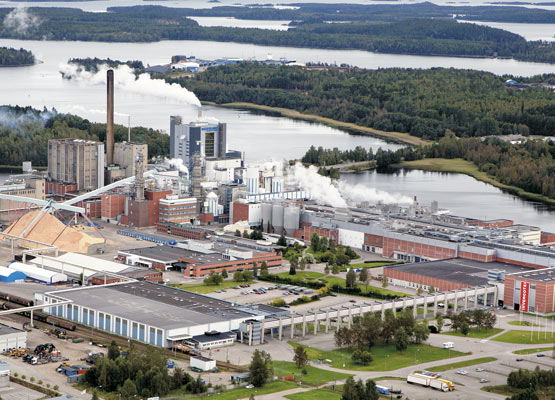Packaging with lives at stake
/ins Sometimes people who work with food packaging feel tied down by all the regulations and standards that exist to guarantee safety. However, the regulations for packaging medical technology (“medtech”) products are equally complex. These products must be manufactured in a sterile environment and then transported all the way into an operating room without risking contamination. Otherwise, people’s very lives could be in danger.
One of the most important requirements is that the packaging solution can successfully deliver the product – which might be an implant or surgical equipment – into the operating room. To ensure this, numerous standards place demands on the packaging material’s permeability, that it can withstand the sterilisation process, that its closures are durable, that the materials do not allow microorganisms to pass through them, and much, much more.
All these requirements must not only be met, they must also be documented with the support of statistically significant data. Quality control systems that emphasise risk management must of course be in place. The natural explanation for why medtech packaging regulations are so stringent is partly that people’s lives can be at risk. Another reason is that the product itself is of high value, especially if its underlying R&D costs are included in the calculations. Last but not least, huge costs could result if something goes wrong – if a product’s packaging is inadequate the manufacturer may have to do a major recall and could also be held responsible for non-delivery.
“I’ve seen examples where a medical implant is packed in a sealable bag made of a plastic material, put inside an outer packaging made of paperboard, and then put inside a transport packaging made of cardboard,” says Ian Huskinson, Technical Service Manager at Iggesund Paperboard. “Then the transport packages are stacked onto a pallet and secured with shrink wrap. The whole pallet is then loaded into a sterilisation chamber and sterilised.”
Supplying material for use in medtech packaging can also involve demands that rarely occur in other industries. Because all input materials must go through extensive and thereby costly qualification and validation processes, subsequently altering or replacing them is strongly discouraged.
“Sometimes we must commit to not making any changes to the product’s composition for a number of years into the future. That might mean we have to abstain from improving a product even though we could do so – but that’s the price of being considered as a supplier to the medtech market,” Ian Huskinson emphasises.
“One of our foremost assets in this context, in addition to the purity and hygiene that are associated with using virgin fibre, is our strong focus on product consistency,” he adds.
Both of Iggesund Paperboard’s paperboard brands, Invercote and Incada, are used in a number of medtech applications.
Caption 1: An implant must be transported from its sterile manufacturing environment to the operating room without risking contamination.
Caption 2 : “One of our foremost assets in this context, in addition to the purity and hygiene associated with using virgin fibre, is our strong focus on product consistency,” emphasises Ian Huskinson of Iggesund Paperboard.
Iggesund
Iggesund Paperboard is part of the Swedish forest industry group Holmen, one of the world’s 100 most sustainable companies listed on the United Nations Global Compact Index. Iggesund’s turnover is just over €500 million and its flagship product Invercote is sold in more than 100 countries. The company has two brand families, Invercote and Incada, both positioned at the high end of their respective segments. Since 2010 Iggesund has invested more than €380 million to increase its energy efficiency and reduce the fossil emissions from its production.
Iggesund and the Holmen Group report all their fossil carbon emissions to the Carbon Disclosure Project. The environmental data form an integral part of an annual report that complies with the Global Reporting Initiative’s highest level of sustainability reporting. Iggesund was founded as an iron mill in 1685, but has been making paperboard for more than 50 years. The two mills, in northern Sweden and northern England employ 1500 people.
Further information:
Staffan Sjöberg
Public Relations Manager
staffan.sjoberg@iggesund.com
Iggesund Paperboard
SE-825 80 Sweden
Tel: +4665028256
Mobile: +46703064800
www.iggesund.com












Let us know if you are going to use this press release. Thank you!